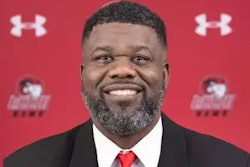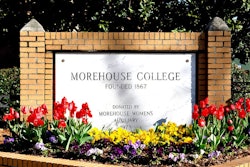It has been said that those who fail to heed the lessons of history
are doomed to repeat the mistakes of the past. Perhaps someone should
pass Kansas State University’s football team a history book.
The Wildcat football team at Kansas State has named its swarming
defense the “Lynch Mob.” While I’m proud that the Wildcat football
program has risen like a phoenix from the ashes of its infamous
“Futility U” days, I am saddened that a team that represents an
institution of higher learning would select such an inappropriate name.
And perhaps even more troubling is that their ignorance of the bloody,
violent, and racist history of the phrase is yet another casualty of
the sanitized historical slant many textbooks I present.
I know football is a violent sport. And sure, a strong defense is
what championship teams are built on. The Purple People Eaters, Steel
Curtain, and Doomsday defenses are prime example of that. Defense has
been a staple in the Wildcats’s rise to national prominence. But I
would hope no team would want to be allied with a name that is
associated with so much racism, pain, and injustice. I could never
imagine a Jewish team naming itself the Storm Troopers, Nazis, or
Burning Ovens, nor could I imagine a team with Native Americans
allowing themselves to be called the Cavalry. Wake up, my brothers.
Some team members have pointed to the fact that rapper Ice Cube’s
posse refers to themselves by that name. I am not enamored with their
name, but I know that it is more of a political statement than an
argument of ignorance. They know their history.
For the record, the American Heritage Dictionary defines lynching
as an execution “by hanging without due process of the law.” Perhaps
many associate the name with a John Wayne-type Western movie with a
posse going after a criminal.
But while the practice has been used extensively on Whites who got
out of line, it is also largely associated with its Black victims.
Prior to the Emancipation Proclamation it was a tool to discourage
slave revolts. After the manifesto, it became a mechanism to mentally
shackle the former slaves, since it could no longer be done by law.
The late Walter White, former executive director of the NAACP,
wrote in his book, Rope and Faggot, that the widely accepted
explanation for the name is that it came from a Virginian named Charles
Lynch, who became upset with the lack of law in the western part of the
state prior to the Revolutionary War. Lynch and friends formed their
own judicial system – with Lynch as the chief magistrate – and meted
out their own brand of capital punishment. Hence the name of the town
of Lynchburg, Virginia.
To me, “Lynch Mob” conjures up visions of a sinister tool wielded
by the Night Riders, the Ku Klux Klan, and other bigots — a violent,
brutal effort on the part of Whites to keep Blacks down economically,
socially, and any other way conceivable. To me, “Lynch Mob” is Billie
Holliday singing about the “Strange Fruit” that dangled from southern
trees. To me, it’s the stories I’ve heard about Black men who would
“disappear into the bayou,” weighed down with cinder blocks and their
stomach slashed to prevent gas bubbles. It’s Emmett Till, the
14-year-old Chicago youth killed and sexually mutilated after he was
accused of whistling at a White woman.
Some may say this is ancient history; that lynchings don’t occur;
that this is an unfortunate part of our country’s racist past. For
anyone so naive, I would challenge you to consult the family of Garnett
Johnson. The forty-year-old ex-Marine was set aflame and beheaded by
two “friends” this past July in Grayson, Va.
To its credit, Kansas State University has distanced itself from
the name by not using it officially and saying that it is a name the
players chose themselves. However, just hoping the name will die has
become a pipe dream. The name has been around for several years and has
become a rite-of-passage from one team to another.
Just why is it that Kansas State fumbles when it comes to
graduating its African American football players, ranked in the Bottom
Fifty Football List of Emerge Magazine? Why is it that the fans will
stand for these anemic figures? Would they turn their heads and
maintain that same silence if the Wildcat football team were ranked
ninth in the conference standings, rather than its graduation rates?
Some fans may be willing to overlook the obvious for the sake of a
winning program. My conscience will not allow me to do so. This is an
academic institution, not an athletic institution. Rather than trying
to think of catchy nicknames for their defense, the Wildcat football
players may be better served trying to graduate.
Have the football players been following their brethren at the
University of Mississippi? Ole Miss athletes have taken a stand and
virtually banished the Confederate flag from being waved at sporting
events. Although many grumbled, others listened, especially when
officials voiced concerns it was hampering recruitment efforts.
I’ll take a team with socially conscious athletes who graduate over
those with no social consciousness and don’t graduate and just rack up
bowl appearances any time. I would certainly think twice about sending
my child to play for a team that chooses a nickname dripping with the
blood of hatred and bigotry.
Keener A. Tippin II is the research news and features coordinator at Kansas State University and a syndicated columnist.
COPYRIGHT 1997 Cox, Matthews & Associates
© Copyright 2005 by DiverseEducation.com















